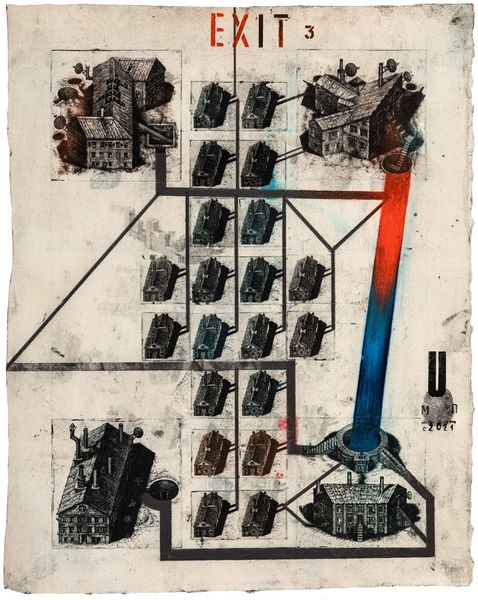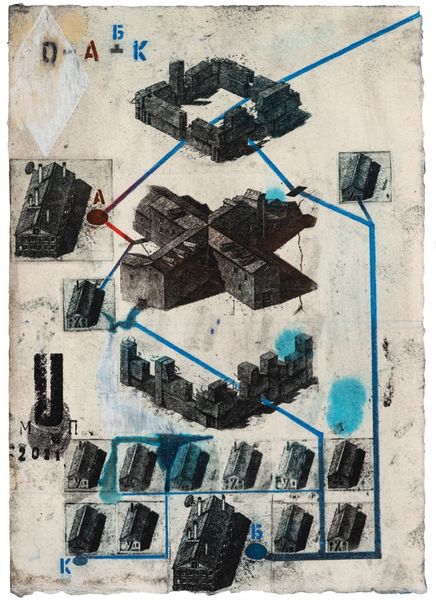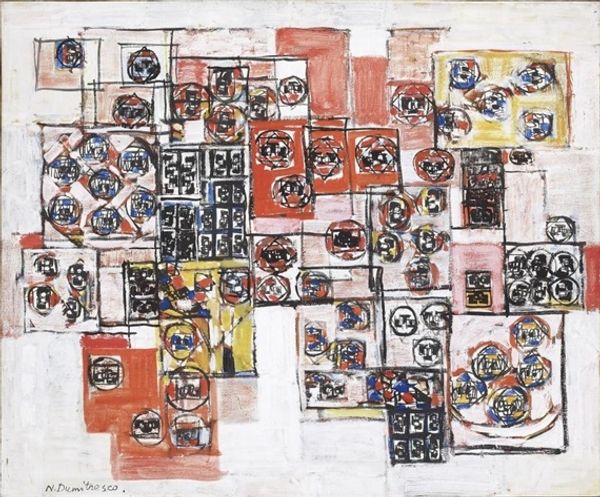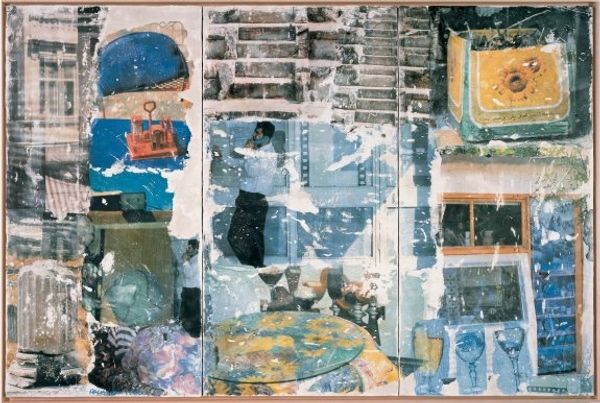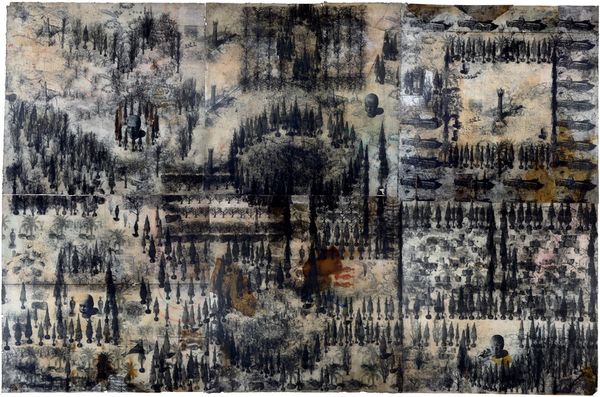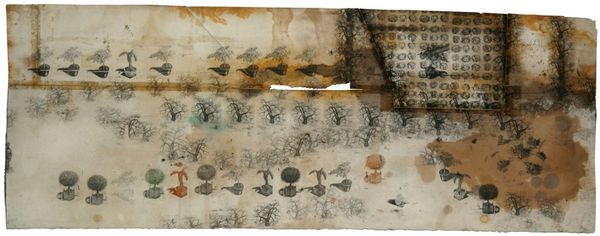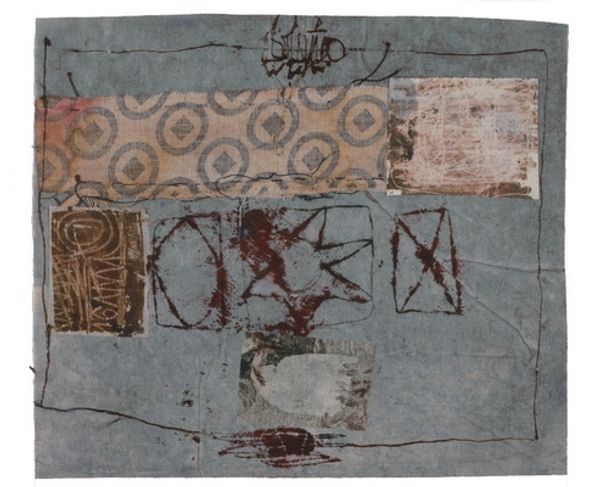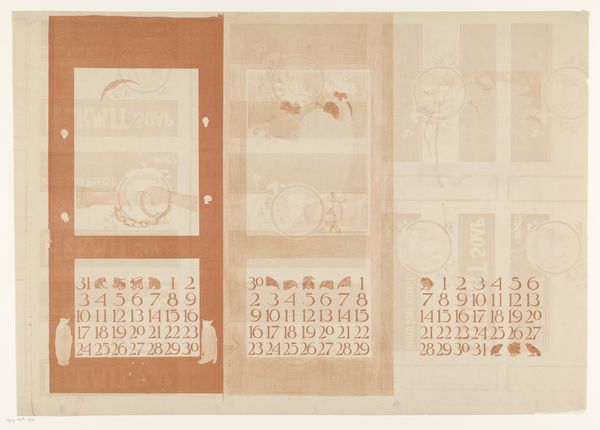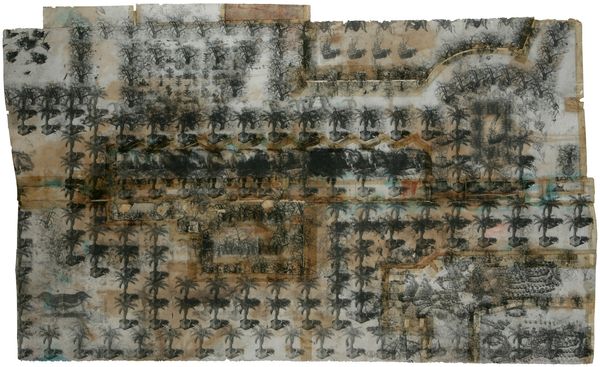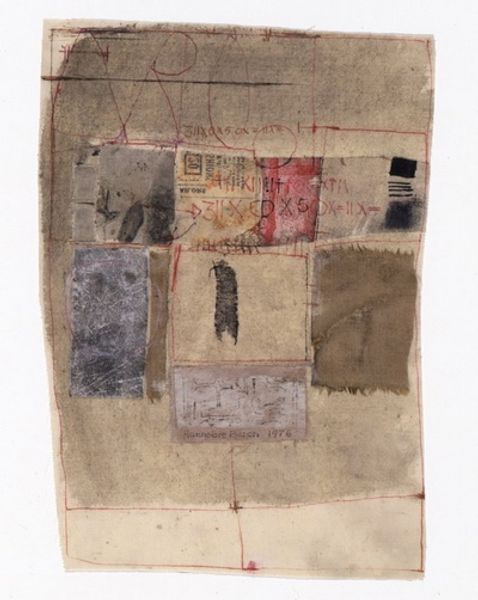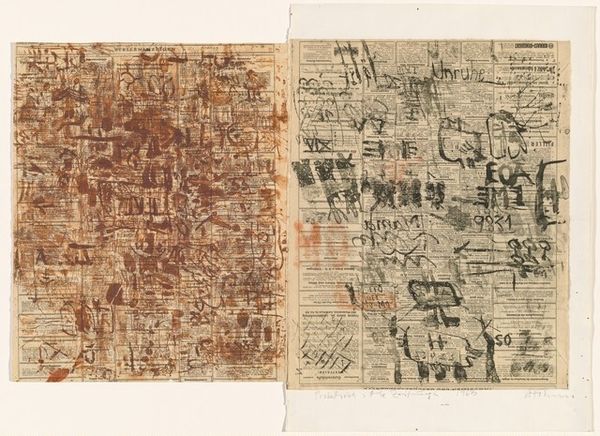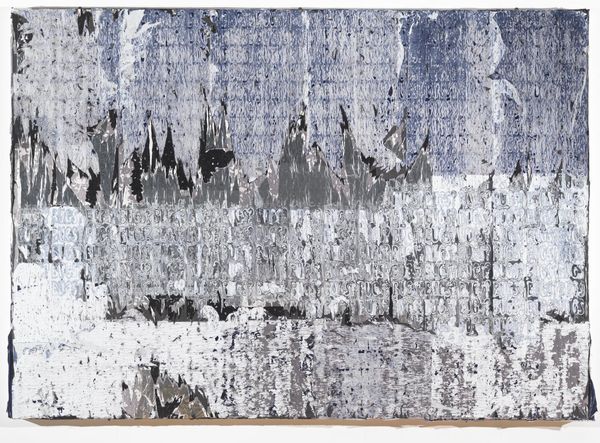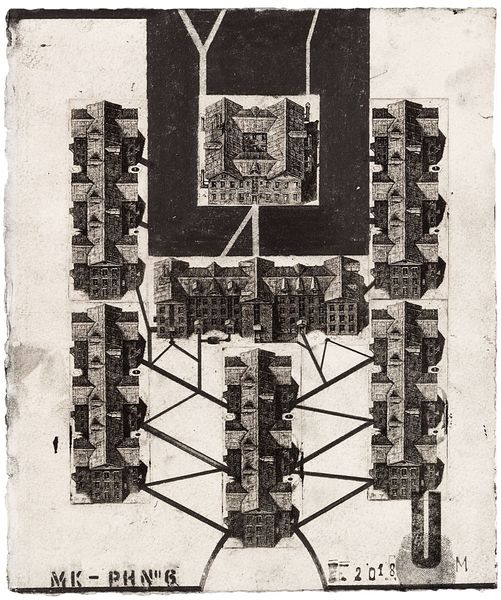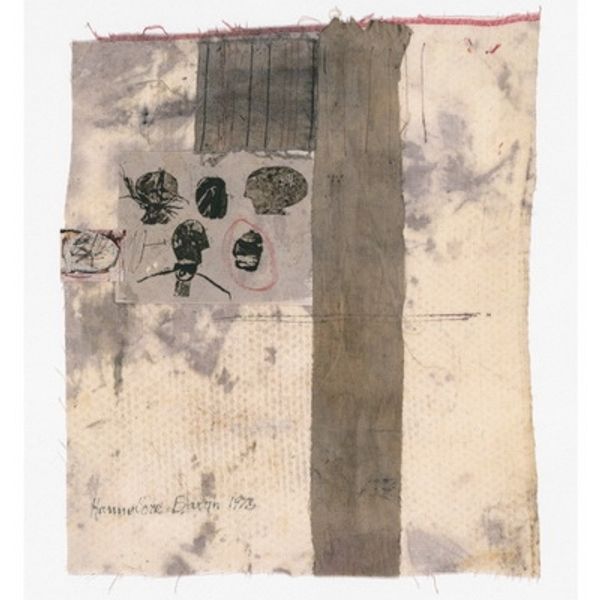
mixed-media, collage, paper, watercolor, ink
#
mixed-media
#
contemporary
#
collage
#
water colours
#
landscape
#
figuration
#
paper
#
watercolor
#
ink
#
geometric
#
mixed media
#
watercolor
Dimensions: 110 x 190 cm
Copyright: Pavlo Makov,Fair Use
Editor: Pavlo Makov's "Zimin's Garden," created in 2007, strikes me as incredibly complex. It's a mixed-media collage, and the combination of geometric shapes, watercolors, and what look like diagrams give it an almost scientific yet dreamlike quality. What's your take on this work? Curator: It's tempting to read "Zimin's Garden" as a reflection of institutional knowledge, particularly its fragmented nature and dissemination. The piece seems to mimic the architecture of scientific and academic display itself, doesn't it? All these individual fragments… Do they suggest a coherent narrative, or are they deliberately disjunctive? Editor: That’s a great point about fragmentation! I initially saw it as a personal collection, but thinking about it as a commentary on institutional knowledge shifts the focus. Perhaps the juxtaposition is a deliberate challenge to how we expect information to be presented. Curator: Exactly. Think about the political context too. Makov is Ukrainian. Created in 2007, this piece could be viewed as a statement about the relationship between history, identity, and perhaps even national narratives in the face of globalization. Does it celebrate or critique? The garden motif itself is interesting – a contained, curated space… a metaphor, perhaps, for how a culture preserves itself? Editor: So, you're suggesting the "garden" isn't just a pleasant landscape, but a symbolic space of control and cultural presentation? The fragmented nature perhaps shows the difficulty of presenting any definitive version of a national or cultural identity? Curator: Precisely. The garden as a microcosm, shaped by both natural forces and human intervention, speaks volumes about how we construct and understand the world around us, especially in post-Soviet space. Editor: This has really opened my eyes. I see so much more depth now. I'm not sure if there's one definitive reading, but considering its historical context definitely adds a layer of understanding. Curator: Agreed. The lack of a single meaning is, perhaps, the most potent message of all. Art is never created, or viewed, in a vacuum.
Comments
No comments
Be the first to comment and join the conversation on the ultimate creative platform.
